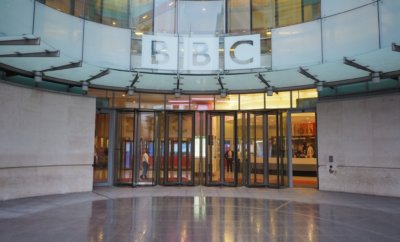India
Press Council Of India Dismisses World Press Freedom Index Rankings

Representational Image
Photo: Bigstock
Press Council of India says there is lack of clarity on the parameters used for the ranking as India slips down two spots on the Press Freedom Index.
Citing “lack of clarity” on what the rankings were based on, the Press Council of India (PCI) has rejected the recently released Press Freedom Index in which India was ranked 138th among 180 countries, PTI reported.
The World Press Freedom Index, published annually by Reporters Without Borders since 2002, looks into media freedom in 180 countries, judging them on various parameters, such as the level of pluralism, media independence, environment and self-censorship, legal framework, transparency, and the quality of the infrastructure that supports the production of news and information.
In the report released on April 25, India dropped two spots, from No. 136 last year to No. 138. The report attributes the fall to incidents of physical attacks against journalists like Gauri Lankesh, who was shot dead outside her house in Bengaluru in September last year. The report also talks about Section 124a of the Indian Penal Code, which mentions life imprisonment for “sedition,” saying that the law encourages self-censorship.
“In India, hate speech targeting journalists is shared and amplified on social networks, often by troll armies in Prime Minister Narendra Modi’s pay,” the report says.
However, PCI dismissed the report. “We reject the rankings by the RWB. I am of the opinion that undue importance is given to the rankings. There is no clarity on the inputs that weighed in the ranking of a country,” PCI chairman Justice (retd) CK Prasad told the news agency.
The Indian organization had written to the RWB a number of times to gain an understanding of how the index was prepared but did not get a response, Prasad said, adding that the rankings were “reportedly” based partly on a questionnaire sent to the partner organization of the RWF, its correspondents around the world, and journalists, researchers, jurists and human right activists.
He went on to say that PCI has told the RWB that the rankings were not based on statistical data, but “based on opinion or perception of an individual or group of individuals.”
After the World Press Freedom Index came out in 2015, the PCI wrote a letter to RWB on Sept. 22, 2015, which said: “In order to understand the gravity of the matter, the chairman of the Council desires to know the inputs which weighed in ranking of the country in the index so that remedial steps, if needed, can be taken to smoothen the functioning of the media.
“The chairman is further of the opinion that a structured discussion on the issue with your (RWF) representative and the members of the Council would be helpful in achieving the objective.”
The letters were also sent in October and December of the same year and in early in 2016, when the council said that the rankings “could either be on the basis of statistical data or perception of an individual or group of individuals.”
The letter said: “If the ranking is on the basis of statistical data, the council requests you to share it with us, so as to enable us to take remedial measures as it deems proper. The council is constrained to communicate that if no data is shared, it shall have to come to the conclusion that India’s ranking in World Freedom Index is based on perception and is not supported by any verifiable data.”




You must be logged in to post a comment Login